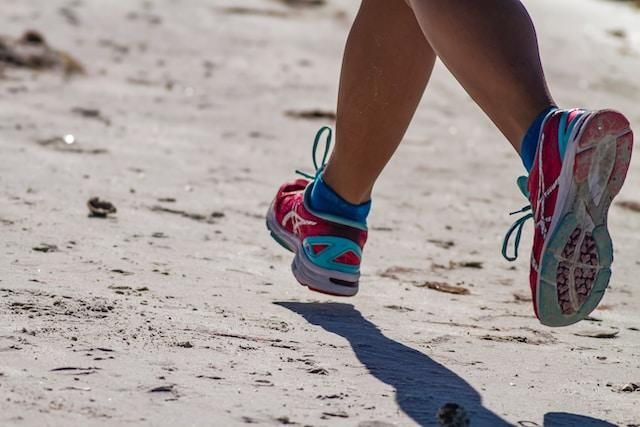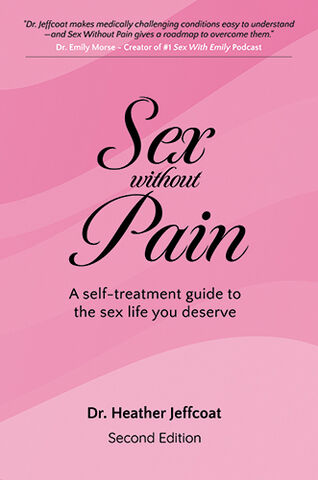Did You Know That Proper Footwear Can Improve Your Running Mechanics and Pelvic Floor Health?
How Do My Feet Impact My Pelvic Floor When I Run?
If you are a runner, you tend to look for ways to improve your running. If you’re thinking about starting up or returning to running, it can feel intimidating particularly if you have any symptoms related to pelvic floor dysfunction. This only complicates an exercise that, on the surface, seems fairly straight forward. There are some studies that have looked at how your feet can play a part in your pelvic floor muscle function while you run. And if you are looking to return to running postpartum, read on and also check out this article by one of our pelvic floor physical therapists.
Stress urinary incontinence (SUI) is defined as the involuntary leakage of urine with activities that raise intra-abdominal pressure. These activities can include sneezing, coughing, laughing, and various forms of exercise. The prevalence of SUI in postpartum women is 20%, but in postpartum female athletes can be as high as 36% (Steimling et.al). For some, more vigorous exercise, like running, is the only thing that triggers incontinence despite pelvic floor muscle training.
When it comes to shoes, people lean towards one of two camps. In one camp, people feel traditional shoes are supportive and cushioned to protect the foot and increase performance. On the other side, people who like minimalist shoes that mimic being barefoot believe that the body will adapt naturally to the forces of running with fewer of these advancements.
Footwear and Running Mechanics
Footwear Choices for Running
Compared to traditional shoes, minimalist shoes are made with less cushion, less or no drop (amount of heel raise compared to toe raise), and are lighter in weight. In a recent study, women running in minimalist shoes have been shown to have more EMG activity of the pelvic floor muscle particularly at higher speeds of 5.6mph (10.7 minute miles) and 6.8mph (8.8 minute miles). Therefore, this seems to show that with less cushion in the shoe, the pelvic floor activates more.
Aside from shoe type, a solution was found in a case study of a woman who no longer had incontinence with sneezing and coughing but only while running. Having her soften her landing to make less noise decreased the ground reaction forces and resolved the residual urinary incontinence she had with running. Decreasing the amount of ground reaction forces by voluntarily changing running dynamics can affect symptoms. Changing your cadence (how many steps per minute you take), changing how your foot strikes the ground and changing the vertical oscillation (how much you “bounce” when you run) can alter ground reaction forces. (Steimling et.al)
The question is: Does success occur by creating the demand to counter ground reaction forces (as with minimalist shoes) OR by minimizing the effects of ground reaction forces on the pelvic floor by changing your running mechanics?
Research continues to investigate the link between the feet and pelvic floor muscles. There is significant research studying the stimulation of the tibial nerve (which partially provides motor and sensation functions to the lower leg) to treat bladder dysfunction as well as links found between foot position or muscle tightness and the pelvic floor. (Lee et.al., Bhide et.al.)
If you are having trouble finding a solution on your own, our physical therapists can help assess your specific orthopedic and pelvic floor issues to help you determine what may address your specific situation best to get you back to exercise and a more healthy, happy YOU!
References:
- García-Arrabe, M., García-Fernández, P., Ruiz-Ruiz, B. et al. Effects of minimalist shoes on pelvic floor activity in nulliparous women during running at different velocities: a randomized cross-over clinical trial. Sci Rep 12, 21218 (2022). https://doi.org/10.1038/s41598-022-25344-6
- Steimling, Michael PT, DPT1; Roberto, Michael PT, DPT2; Steimling, Melinda PT, DPT3. Running Gait Retraining in the Management of a Multiparous Runner With Chronic Stress Urinary Incontinence: A Case Study. Journal of Women's & Pelvic Health Physical Therapy 47(2):p 114-121, April/June 2023. | DOI: 10.1097/JWH.0000000000000265
- Lee K. Activation of Pelvic Floor Muscle During Ankle Posture Change on the Basis of a Three-Dimensional Motion Analysis System. Med Sci Monit. 2018 Oct 10;24:7223-7230. doi: 10.12659/MSM.912689. PMID: 30301876; PMCID: PMC6192454.
- Bhide AA, Tailor V, Fernando R, Khullar V, Digesu GA. Posterior tibial nerve stimulation for overactive bladder-techniques and efficacy. Int Urogynecol J. 2020 May;31(5):865-870. doi: 10.1007/s00192-019-04186-3. Epub 2019 Dec 18. PMID: 31853597; PMCID: PMC7210232.













